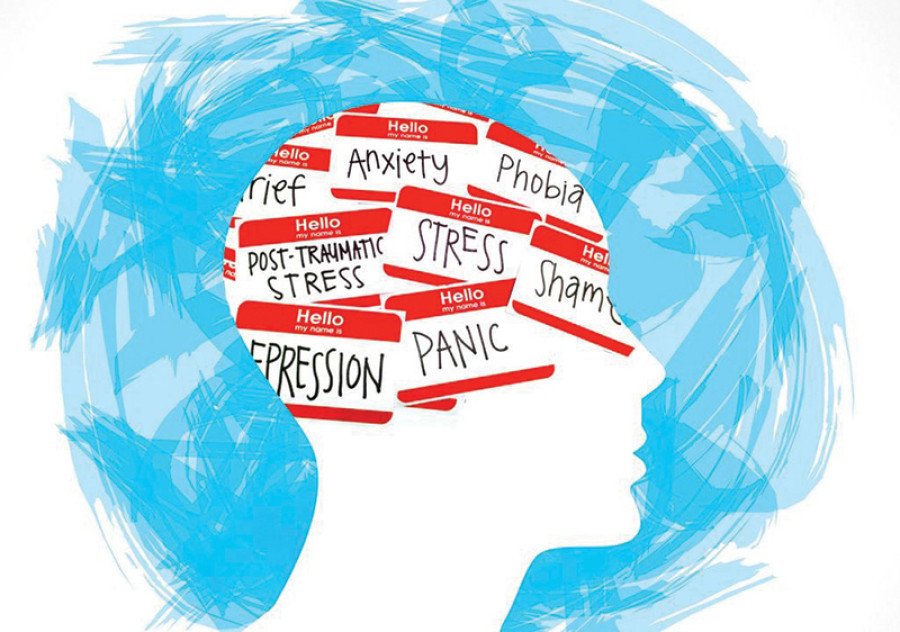Health
Experts warn of mental health problems in quake-hit areas
Study showed 34 percent rise in anxiety, 20 percent jump in alcohol use and 11 percent increase in suicidal thoughts.
Arjun Poudel
Mental health experts in Nepal have warned of potential exacerbation of mental health problems in the areas hit hard by Friday night’s earthquake that killed at least 153 in Jajarkot and West Rukum districts.
Experts—psychologists and psychiatrists—have alerted the authorities concerned to the risks and called for timely measures to address them.
“The rise of mental health problems in the aftermath of disasters is an obvious occurrence, not only in Nepal but everywhere,” said Dr Basudev Karki, a consultant psychiatrist at Nepal Mental Hospital. “So the agencies concerned should prepare for it.”
Mental health issues were discussed extensively in the aftermath of the 2015 earthquake that killed around 9,000 people, injured thousands, and displaced hundreds of thousands.
According to a study carried out in the aftermath of the Gorkha earthquake, there was a 34 percent rise in anxiety and depression in the major quake-hit districts—Kathmandu, Gorkha and Sindhupalchok. Similarly, the study found a 20 percent increase in alcohol use and an 11 percent increase in suicidal thoughts among the displaced.
Anger that was out of control was reported by around 34 percent of the respondents. Over five percent of people had elevated rates of posttraumatic stress disorder. The report shows that 42 percent of people reported that ‘distress’ was a serious problem in their community.
“Mental health issues should not be underestimated, especially in the disaster-hit areas, as they can have long-term consequences,” said Karki. “Our own experience shows that mental health problems get worse after disasters—be it after the 2015 earthquake, the Covid pandemic, or the recent Jajarkot earthquake.”
Easing access to counselling services, timely detection of mental health problems, imparting life skills to people, and creating general awareness are some ways to address mental health problems, according to experts.
Health workers serving in quake-hit districts say that coming days will be more challenging, as there will be high risk of an outbreak of communicable diseases, as well as of an increase in non-communicable diseases including mental health problems and respiratory illnesses.
“Even if we are yet to witness serious problems, they are bound to arise in the coming days,” said Pratiksha Bharati, a health worker serving at Health Office Jajarkot. “Many people are in trauma and it will take time for them to recover.”
Doctors say an outbreak of communicable diseases—cold-related ailments and waterborne diseases—is likely in the coming days due to falling temperatures and damaged infrastructure.
Along with houses, toilets were also destroyed in Friday’s earthquake. Officials say the destruction of toilets increases open defecation, which risks contamination of water sources. The risk of spread of vector-borne diseases—malaria, dengue, kala-azar and scrub typhus among others—also increases, according to experts.
Nepal saw a surge in scrub typhus cases after the 2015 earthquakes, which killed nearly 9,000 people. Three months after the twin earthquakes, the BP Koirala Institute of Health Sciences, Dharan had alerted the Epidemiology and Disease Control Division on six cases of children with unusual fever and severe respiratory problems.
Over 4,000 people have been infected with scrub typhus since January this year.
Meanwhile, the Health Ministry officials say that they are aware of possible public health challenges, which could arise in the quake-hit areas in the coming days.
“We have been working to send psycho-social counsellors to affected districts,” said Dr Roshan Pokhrel, secretary at the Health Ministry. “We are also aware of the risk of outbreaks of communicable diseases there.”




 13.12°C Kathmandu
13.12°C Kathmandu















